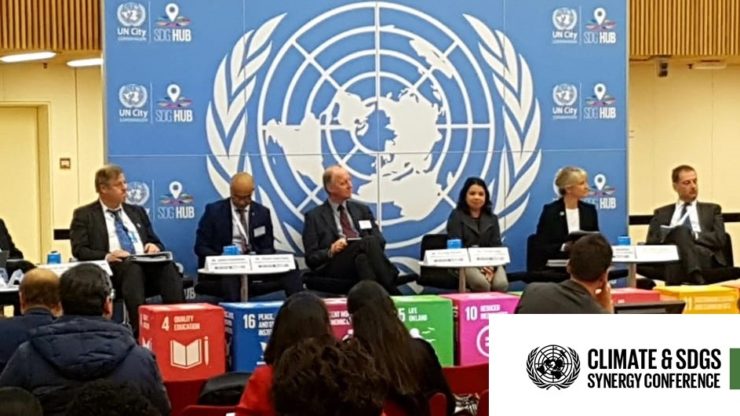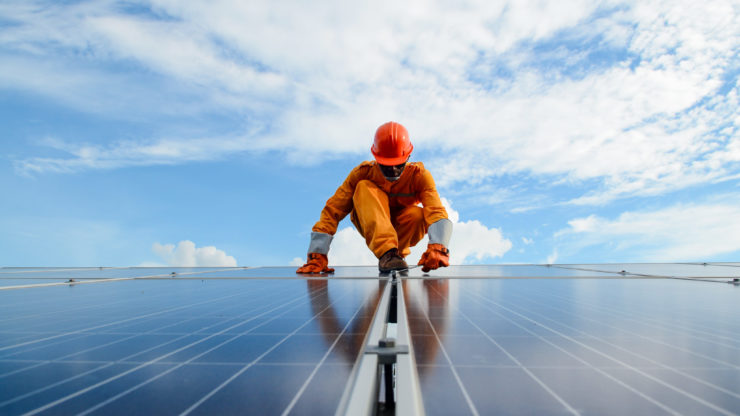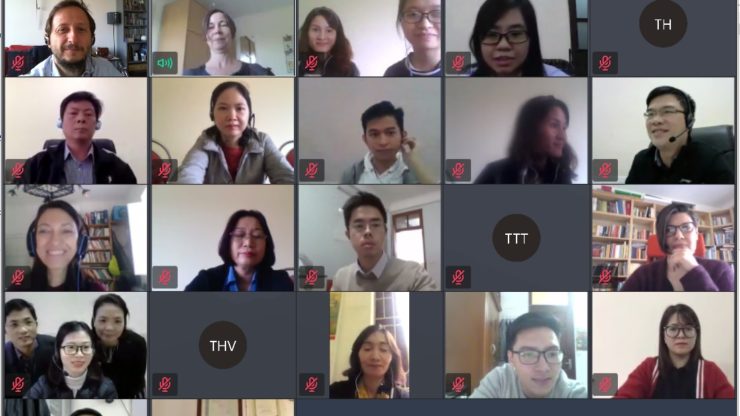UNEP DTU Partnership has been invited to organise a session on transparency in the upcoming Climate and SDGs Synergies Conference 2020.
Through three in-depth webinars, UNEP DTU Partnership joins a diverse range of experts and practitioners to delve in to, how countries and stakeholders leverage climate & SDGs synergies for their efforts to recover better and stronger from the Covid-19 pandemic.
Last year the conference was held for the first time, co-hosted by UNEP DTU Partnership in Copenhagen’s UN-City. This year, due to the Covid-19 outbreak, the Conference will be completely virtual. Responding to the severe crisis of the outbreak, it will focus on “Harnessing Climate & SDGs Synergies to Recover Better and Stronger from the Covid-19 Pandemic”.
For the first webinar on the 28th of May called “Thinking ahead for a Sustainable, Just & Resilient Recovery”, UNEP DTU Partnership is organising a session on Monitoring Synergies for Transparent & Accountable Covid-19 Recovery
Aligning recovery with global goals
The overall webinar focuses on the challenges of planning in a time of intersecting crises, using examples that account for trade-offs and harness synergies in the recovery process.
The session organised by UNEP DTU Partnership will present and discuss opportunities and challenges for national MRV/transparency systems to align pandemic recovery plans with global and national goals for climate and sustainable development.
It presents data managements systems, skills and methods to implement the Enhanced Transparency Framework (ETF) of the Paris Agreement and addresses, how synergies in the implementation of NDCs, SDGs and Covid-19 response plans can promote radical, transformational change for the global goals.
You can register for the webinar here.
Transparent actions for climate and Covid-19
As a part of the Initiative for Climate Action Transparency (ICAT), UNEP DTU Partnership works actively to provide policymakers around the world with tools and support to measure and assess the impacts of their climate actions.
Experiences from this work form the part of the basis on which the session is founded, while panellists from Japan and Costa Rica add perspectives from the practical implementation of transparency measures.
During the webinar, ICAT is also represented in a session on Climate, Health and Inclusive Growth in the Context of Pandemic Recovery. Here the ICAT Sustainable Development Methodology and the importance and advantages in a time of health crisis are presented.
Synergies on all levels
The COVID-19 pandemic is a crisis for humanity. Unemployment is soaring, billions of livelihoods are in jeopardy and a global economic recession is imminent. At the same time, many governments are rolling out stimulus packages on a monumental scale and planning for recovery.
Against this backdrop of uncertainty and rapid change, the SDGs and the Paris Agreement can serve as a compass to policymakers.
To assist in this, the upcoming Climate and SDGs Synergies Conference 2020 take stock of the knowledge and practice in implementing synergies at all levels and explores, how to maximize SDG & climate co-benefits in Covid-19 recovery measures.
The conference will produce an action-focused final Report to serve as input for the 2020 High-Level Political Forum, the SDG Decade of Action, COP26 and other global fora. It will also compile case studies and examples of achieved synergies, and foster a continued exchange and engagement among the synergies community, supporting a multi-disciplinary approach to recovery from the Covid-19 pandemic.
UNEP DTU Partnership as co-organiser
In 2019, nearly 400 participants from around the world came together for the first Climate and SDGs Synergy Conference—formally the “Global Conference on Strengthening Synergies between the Paris Agreement and the 2030 Agenda for Sustainable Development” in UN-CIty in Copenhagen.
As with this year’s conference, it was organized by the United Nations Department of Economic and Social Affairs (UN DESA) and UNFCCC. Last year’s conference was also organised in a collaboration with UNEP DTU Partnership and UNOPS.


